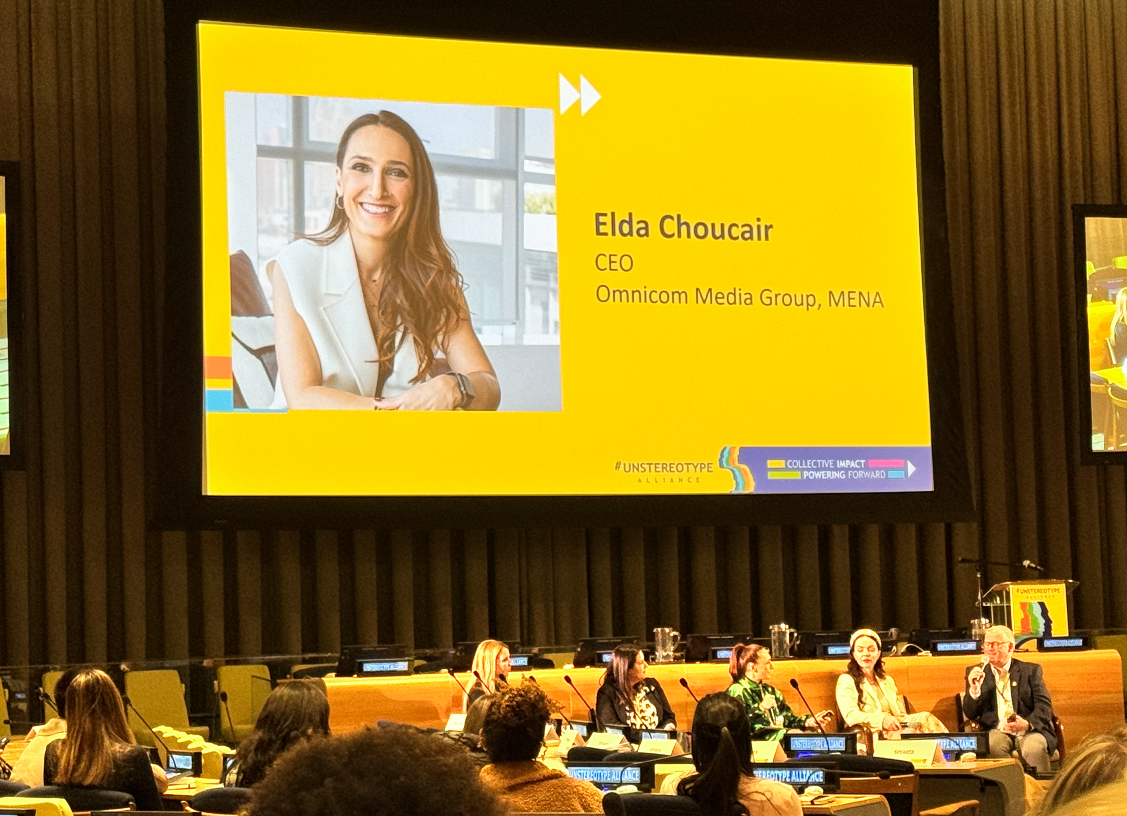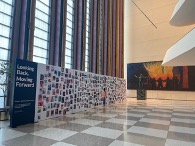
The Unstereotype Alliance (UA), the industry-led initiative convened by UN Women to end harmful stereotypes in advertising, recently held its Global Summit 2024 in New York.
As a Founding Board Member for the UA chapter in the UAE, it was a privilege to attend it and have been asked to address its audience, joining an illustrious panel of speakers.
Here are six key questions the Unstereotype Allicance Global Summit raised for me:
1. Loved Madeline Di Nonno’s “Power of Partnerships”. It was the first time I heard about Madeline’s work as CEO and President of the Geena Davis Institute on Gender in Media (GDI), which, I was surprised to learn, has been going on for 20 years already!
She shared an incredibly insightful research and data analysis relating to female appearance and representation on screen, movies, series, animation as well as gaming.
I learnt, for example, that in children TV shows, human animated characters are 50% females, however non-human animated characters, like the monkey in Dora, have male voices 62% of the time.
These are subtle influences, so being mindful when casting characters is important but also when choosing writers from marginalised communities. If you can measure it, you can change and improve it…
Key question raised: what and how much do we measure in our region?
2. Loved Nicky Bullard’s “Outrage”: The Group CDO at MullenLowe is outraged about how advertising executives and their clients are generally ignoring consumers above the age of 50, even in the UK where numbers are swelling.
Populations are ageing in many countries but they are notoriously absent from brand ads. Not featuring and not targeting them, marketers are missing out on what’s often the biggest purchasing segment and purchasing power.
Worse, when they are not ignored, they’re pictured in elderly homes, sick or needing help. The stereotype hasn’t caught up with reality, which is that many of the 50+ are active, well-off and enjoying life to the max.
As much as I loved Nicky’s point, I also think it’s a tricky one as advertising is aspirational, not only realistic. Older generations want to feel younger and see younger versions of themselves.
Key question raised: how do we balance between aspirational and realistic representations in advertising?

3. Loved the mural created by Getty Images titled “Looking Back, Moving Forward” and presented at the entrance of the building lobby!
A journey down memory lane, this mural goes back 75 years in advertising. It makes a strong point for men, specifically the depictions of masculinity and “the successful man”.
It tells quite a story of what it means to be successful. Increasingly, over the years, to be attractive, men have become more unclothed, emotionless, detached, and isolated in ambiguous settings.
Key question raised: is it time to retire outdated constructs of what it means to be a ‘successful man’?
4. Loved the work presented by Andrew Stephen, Deputy Dean at Said Business School, University of Oxford on the Business Case for Progressive Marketing.
Every brand marker went up when adopting progressive advertising, whether brand uniqueness (2.25x) affinity (2.28x), consideration to buy (1.56x) brand loyalty (1.47x).
In fact, the only brand marker that didn’t go up was brand awareness, which makes sense as awareness in totality is linked to advertising and not progressive.
Key question raised: how much more data do we need to adopt more progressive and less stereotypical and sometimes harmful representation in advertising?
5. The conference also mentioned the backlash against campaigns that take a progressive approach, as a result some companies are revisiting their DE&I policies and strategies to become more inclusive.
In societies like in India, there is pushback from men, as they see women’s empowerment as a zero-sum game.
Key question raised: how do we deal with this to protect the progress achieved and keep moving forward?
6. Finally, I loved meeting like-minded people from all over the world, who are working hard to create impact.
Some of the colleagues who joined from Africa, and from the health sector, reminded us that there are a lot more basic needs and rights that we need to fight for, and much of what we achieved in progressive societies is a luxury in their world.
Key question raised: how can we be humbler in our outlook without losing our ambition to be better?









